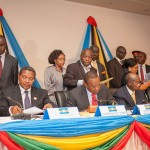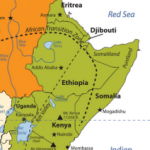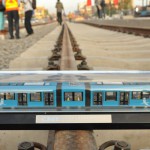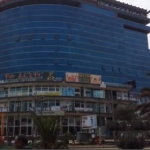A railway expert has criticised the Sh320 billion cost for the upgrade of the railway to standard gauge. President Uhuru Kenyatta has dismissed doubts of MPs who were questioning the deal.
He said there was no corruption in the single-sourced tender award to China Roads and Bridges Construction.
The first phase of the project covers the construction of 480 kilometres between Mombasa and Nairobi and should be completed by 2017.
The expert said Kenya’s topography from Mombasa to Nairobi is almost flat although there will be 98 bridges and 967 culverts.
“The price is still high. All over the world, the price per kilometer is between $1 million (Sh86 million) and $2 million (Sh172 million). The $6 million (Sh515 million) charged is very high,” he said.
“There are no major rivers or lakes or big hills to justify the high cost,” the expert said, adding that CRBC had not explained its costings.
Some MPs have compared the pricing to the construction of the Djibouti-Addis Ababa railway by China Railway Construction Corporation. The Kenyan unit price is 27 per cent higher than the 743-kilometre Ethiopian railway.
The Kenyan cost per km is $6.6 million (Sh566 million) compared to $4.9 million (Sh420 million) for the Ethiopian railway.
However the Ethiopian Railway is double track, not single track. It is also electric which is more expensive than an ordinary railway line for diesel powered trains because of the overhead power lines. Kenya is also spending more to buy its trains and rolling stock than Ethiopia.
The MPs estimate that the Kenyan taxpayer will be spending Sh110 billion more than necessary.
The standard gauge railway line will carry freight trains at up to 80 kilometres per hour, and passenger trains at a maximum speed of 120 kilometres per hour.
The expert, who has worked for Kenya Railways and who asked not to be named, doubted that those speeds can be achieved with a single track as there will be stoppages to allow other trains to pass.
“The traveling time will most likely remain the same, because the passenger train will be picking people along the way,” he said.
The railway upgrade is being funded by a loans from China Exim Bank for 85 per cent of the Sh1.2 trillion rail project. A fuel levy of 1.5 per cent on cost of all imports is expected to raise Sh15 billion in the 2013-14 financial year to help with the costs.
The construction will be completed in five years, from Mombasa to Kigali.
The CRBC will also supply 56 locomotives, 1,620 wagons and 40 passenger coaches, train employees, install facilities signaling and communication control, and provide electricity and water to each station. Existing stations and depots will be rehabilitated.
The expert has predicted that Kenya’s annual GDP will grow by an extra 1.5 per cent after the completion of the new railway.
The railway project has been challenged in court by the Dock Workers Union who said it should not have been single-sourced.
BY SAM KIPLAGAT




























Join Conversations